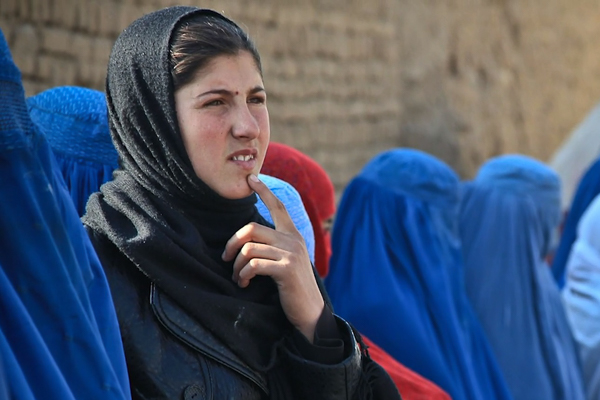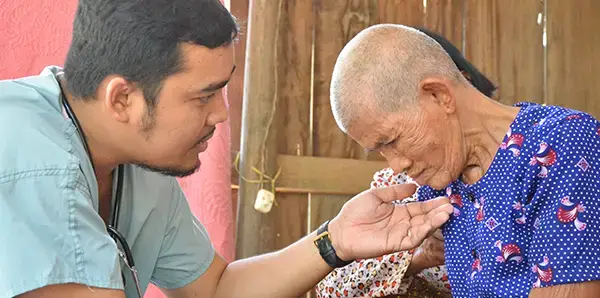Does It Matter How We Communicate the Gospel?

Now at Iconium they entered together into the Jewish synagogue and spoke in such a way that a great number of both Jews and Greeks believed” (Acts 14:1).
What do all of us involved in cross-cultural ministry long to see? We yearn to speak the gospel and see many people believe in Jesus when they hear us speak.
Yet we believe that it is God alone who can draw people to Himself (John 6:44), and that God has to open people’s hearts so that they will believe (Acts 16:14). So then does it really matter what we say? How much does it matter what we say if it’s all up to God anyway?
Acts 14:1 presents us with an interesting puzzle piece for answering these questions. As Paul and Barnabas go into a Jewish synagogue and speak to the Jews gathered there, and to Gentiles as well, Luke comments on how they spoke to them.
They “spoke in such a way” that a great number believed. There was something about how they spoke that connected with the people leading to their belief and salvation.
Now, of course, this absolutely does not deny that salvation is 100 percent God’s work. It doesn’t mean that we aren’t fully reliant on God to bring results.
However, it does mean that ordinarily God is pleased to use our words. And ordinarily God uses words that clearly and persuasively communicate the message of the gospel.
So for missions, what are the implications of this verse?
1. We work in the local language of the people we are trying to reach. For us, that means learning the local dialect of Arabic so that we can communicate in a way that is comprehensible. Language learning takes effort and time, but if we want to communicate in such a way that a great number will believe, we ordinarily need to work hard at acquiring the local language.
2. We work hard to learn how to be effective communicators in our context speak. It is entirely possible to learn grammar and vocabulary of the new language and yet speak as if we’re translating our English words into Arabic or another language. It takes a lot of effort to pay attention to how local people communicate persuasively. It takes time to learn their sayings, their stories, their analogies, their ways of communicating. But just as Jesus used the items from people’s ordinary lives, we have to use local resources for communication in order to be effective.
3. We immerse ourselves in the story of the Bible so that we connect God’s story to theirs. If we do the first two things but aren’t constantly going back to the Bible, we may be seen as interesting and effective communicators with nothing particularly important to say. But if we are constantly moving back and forth between our local context and the biblical story, we may begin to communicate the message of the gospel powerfully and meaningfully.
4. If we are communicating in such a way that everyone likes what we’re saying, we should probably be suspicious. Immediately after Acts 14:1, when many Jews and Gentiles believed, we see in verses 2–4 that many others were opposed to Paul and Barnabas. Unbelieving Jews stirred up the Gentiles against the apostles. The city was divided. Some believed, but others were enraged. The Holy Spirit seems to want us to know that when we speak the gospel, even if we “speak in such a way,” there will be opposition. If no one likes what we’re saying, either we need to pray more that God would be at work, or we need to consider if we’re not communicating clearly and effectively. Yet if everyone likes what we’re saying, we may communicating something clearly, but it just may not be the gospel. If we see people believing, and we see opposition, then we are hopefully speaking in such a way that many believe.
5. We have to continue to pray and increase our devotion to praying for God to work through these ordinary means. I have focused on our faithfulness to what God has called us to do. But at the end of the day, “as many as are appointed to eternal life believe” (Acts 13:48). We need to be faithful to pray that God would open the hearts of many people, even as we continually work harder to speak in such a way that great numbers will believe.
JR* is a missionary serving with MTW’s Muslim ministry.
*Pseudonym used for security purposes.








